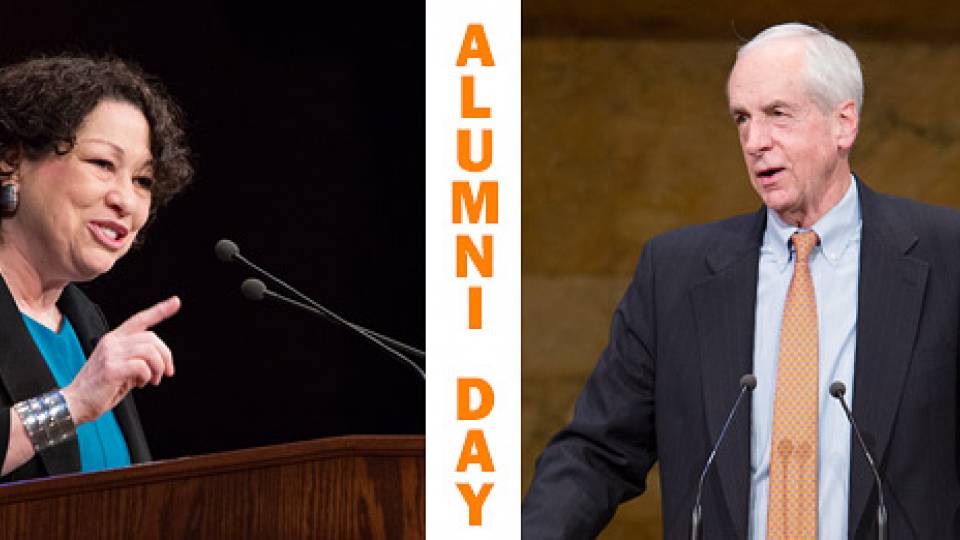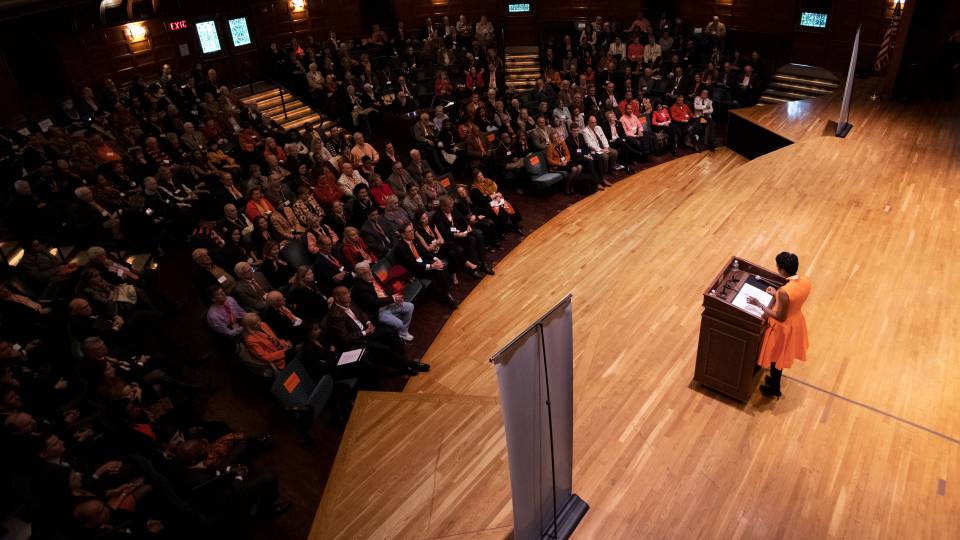by Marion McParland "Don't tell listen" was noted pediatrician T. Berry Brazelton Jr.'s advice on how to help children coping with Sept. 11. Brazelton was among four distinguished panelists who discussed "Talking With Children in a Post-Sept. 11 World" on Saturday, Feb. 23. It was one of several thought-provoking events and lectures held on campus for Alumni Day .
The panel was led by Dr. Marsha Levy-Warren '73, a noted psychiatrist, Princeton parent and former University trustee. Panelists included Brazelton '40, author of 32 books and former Woodrow Wilson Award winner; Janet Smith Dickerson, the University's vice president for campus life; and Frederick Borsch '57, recently retired bishop for the Episcopal Diocese of Los Angeles, University trustee and Princeton parent.
Brazelton advised parents to make themselves available and to create a safe place to hear children's thoughts. Dickerson agreed, recalling her conversations with many University students following the attacks of that day. As an adult listener it's crucial to be fully engaged, find ways to take the time, and be attentive to what is not being spoken, Dickerson said.
"Be discerning, and discover what people really feel," Dickerson added. "Acknowledge that bad things happen to good people." She went on to stress the importance of encouraging hopefulness, understanding, healing and reconciliation.
Borsch suggested that while listening to children's questions should be taken seriously, reassurance is also key. After Sept. 11, he said, "there was sadness in the world. The world had changed; it was a more fearful place. Kids want assurance of God's love, assurance of the love of their parents and teachers."
Levy-Warren said to keep in mind the child's age when offering solace. "A 5-year-old will want a concrete, black and white answer, while a 15-year-old will want a complex picture or military strategy," she said.
Brazelton explained that children reacted to Sept. 11 in specific ways according to their ages. Three- to 6-year-olds generally wanted to know why, asking questions such as "Was it because they were bad? " Six- to 12-year-olds wanted to know how, asking questions such as "How do we protect ourselves?" Twelve- to 20-year-olds wanted to know what it means. They reacted with statements such as "We're living in a new world, not the one to which we were looking forward."
In responding to children of any age, Brazelton noted, "Parents and teachers are the models children watch. Parents can teach resilience by how they respond, how they handle anger and fears, and how they behave as members of society."
"We have to be resilient ourselves," he added. "Let your children know that you're going to do the best you can to keep them safe and to keep yourself safe."
More than 1,320 alumni and parents participated in the events of Alumni Day, which included lectures, receptions, performances and a service of remembrance. Also on Alumni Day, four students received the University's highest honors -- the Jacobus Fellowship and the Pyne Honor Prize.
Contact: Marilyn Marks (609) 258-3601






